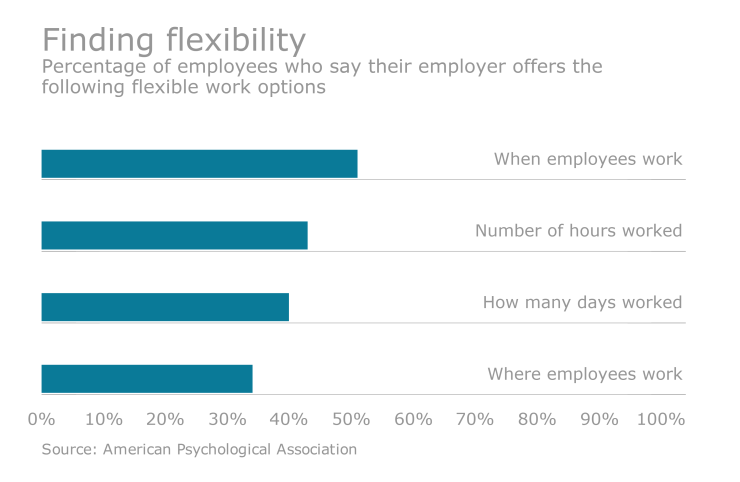Employers need to step up their flexibility game and develop formal workplace policies that encourage the practice rather than the ad-hoc ones usually in place.
That was the message from Andy Rix, midwest market leader, consumer experience practice at Management Consulting, who spoke this week at the WorldatWork Total Rewards conference in San Diego.
“There’s been a lot of under-the-table work-life balance,” he said. “It’s not openly discussed; it’s not educated to employees. Some employers offer it to certain employees in certain circumstances but [they] don’t want to talk about it because they don’t want everyone to [have flexibility].”

“Managers have no formal application process for working remotely and don’t provide resources,” he continued.
Statistics back up Rix’s point.
According to research by WorldatWork and FlexJobs last fall, the majority of companies surveyed (80%) offer flexible work arrangements to employees. However, only 37% of those surveyed report they have a formal, written philosophy or policy to support employee flexibility options. More than two-thirds of managers (67%) offer flexibility to all or most of their employees at their own discretion.
It’s time for that to change and for employers to start designing flexibility programs and policies for all employees, Rix said.
“It’s perfectly OK to design a program with an umbrella policy and then have policies that are very different in different parts of the business,” he said. “You are entitled to make those decisions by what is important for your company. You can exempt certain roles from certain types of work-life balance — some people have to talk to customers and can’t [work remotely]. You need to write a policy; you need to show that there are no adverse effects or there are positive effects [to implementing such policies].”
The reason such policies are lacking, he said, is often because employers are still skeptical about embracing the trend of workplace flexibility — despite it being a “win-win” for both employees and employers.
“There’s a big education piece missing for employers and managers who might be skeptical of [workplace flexibility]. They’re concerned about getting the work done if people aren’t physically sitting in front of it.”
“There’s a big education piece missing for employers and managers who might be skeptical.”
But, he said, the benefits of such policies are obvious: “For the business, [flexibility] helps them manage and retain talent, and gets them to be known as an ‘employer of choice.’ [An employer that embraces it] will be known a as a company that fosters a healthy-life balance. And the healthier employees are, the better — it costs you less and it creates highly engaged employees.”
As for employees, they feel more engaged and devoted to their employer, and they manage stress better, when flexibility is part of the picture, Rix said. Statistics also show that productivity often soars when employees have more control over their schedules.
“[Employees] need employers who get it,” he said. “There are some that voice support for it because they are aware it’s something employees are looking for, but it’s still something they are cautious about.”
But employers need to embrace the trend or risk falling behind, he said.
“The workforce is exponentially more diverse every day,” he said. “Different cultures, genders, ages have different views and priorities. Work-life flexibility recognizes that.”





